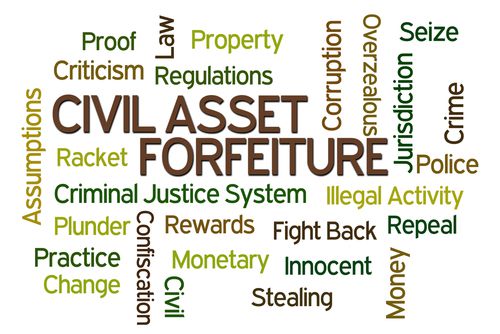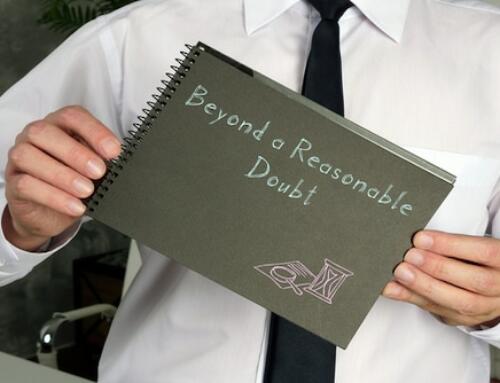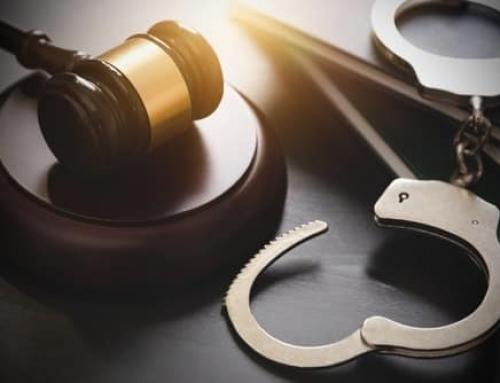As a criminal defense attorney in Philadelphia, I’ve helped clients who are facing the seizure of their assets under Pennsylvania’s civil asset forfeiture laws. Civil asset forfeiture was a tool originally targeted at drug kingpins and the money and assets they amassed as a result of their crimes. However, in recent years, civil asset forfeiture has been increasingly used to take cash, homes, and cars from ordinary citizens in Pennsylvania. A Pennsylvania Supreme Court decision in May 2017 strengthens the rights of homeowners against civil asset forfeiture. In this article, I’ll explain Pennsylvania’s civil asset forfeiture laws and the impact the state’s recent court decision has on those laws.
What is Civil Asset Forfeiture in Pennsylvania?
When property is used to commit a crime, the government can take, or seize, the property. The decision whether to seize property in a civil asset forfeiture is made by police departments or prosecutors; not grand juries or judges. Frequently, the police departments that made the seizure are entitled to keep 100% of the profits from the forfeiture, potentially creating an incentive to increase forfeitures. Assets that can be seized include, but are not limited to, electronic devices used to illegally copy movies, vehicles used to illegally hunt animals, guns used in the commission of a crime, or other property or money linked to terrorism or human trafficking.
Civil asset forfeiture proceedings are not criminal proceedings, but, as the name implies, are civil in nature. People subject to a civil asset forfeiture proceeding are not entitled to the appointment of a criminal lawyer. They have not yet been convicted of a crime and oftentimes are not even charged with a crime. Before May 2017, police and prosecutors in Pennsylvania needed to show merely that it was more likely than not that the subject of a forfeiture was aware of or consented to the criminal activity. The Pennsylvania Supreme Court has changed the burden of proof.
Challenges to Civil Asset Forfeitures in Pennsylvania
While civil asset forfeitures can help fight crime by removing assets from the streets that are used in furtherance of criminal activity, they face challenges in their veracity and enforcement. The Supreme Court of Pennsylvania recounted some of these challenges in a recent case regarding the seizure of a mother’s automobile and home based on the fact that both were “used” by her 50-year-old son in selling marijuana, a crime for which he received house arrest. The PA Supreme Court noted challenges with the civil forfeiture process used to seize the mother’s assets, including:
- Most people involved in civil forfeitures are low-income;
- Most people involved in civil forfeitures cannot afford a lawyer and so represent themselves because there is no constitutional right to be appointed counsel;
- The forfeiture can be excessive when compared to the crime for which assets are seized; and
- The standard of proof of wrongdoing to complete a civil forfeiture is lower than the standard of proof in criminal cases.
The Eighth Amendment prohibition against excessive fines provides many of the arguments against civil forfeitures. The 8th Amendment says, “Excessive bail shall not be required, nor excessive fines imposed, nor cruel and unusual punishments inflicted.” Most have heard of the Cruel and Unusual Punishments Clause of the 8th Amendment, but the 8th Amendment also prevents the government from imposing unduly harsh financial penalties on criminal defendants, either as a price for bail or as a punishment after conviction.
New Civil Forfeiture Ruling in Pennsylvania
The Pennsylvania Supreme Court ruling in May 2017 made it much harder for prosecutors to seize property pursuant to civil forfeiture and set forth a framework for determining when civil forfeiture violates the 8th Amendment prohibition against excessive fines. In short, the court relied on a U.S. Supreme Court decision that ruled seizures must be in proportion to the underlying offense. The PA supreme court laid out the following guidelines:
First, assess whether the property sought to be forfeited is instrumental to the underlying offense. If the answer is no, the forfeiture is unconstitutional. The court cited many factors that contribute to this portion of the analysis:
- Whether the property was uniquely important to the success of the illegal activity;
- Whether the use of the property was deliberate and planned, or merely incidental;
- Whether the use of the property was an isolated incident or repeated;
- Whether the purpose of maintaining the property was to carry out the offense;
- Whether the property is divisible, meaning the part of the property that was used for the underlying offense can be seized, allowing only that specific portion of the property to be seized.
Second, if the property is deemed instrumental to the underlying offense, then the court must determine whether the value of the property is grossly disproportional to the gravity of the underlying offense. The court also cited factors for assessing the value of the property to be forfeited:
- The fair market value of the property;
- The subjective value of the property taking into consideration whether the property is a family residence or essential to the owner’s livelihood;
- The harm forfeiture would bring to the owner or innocent third parties; and
- Whether the forfeiture would deprive the property owner of his/her livelihood.
- Finally, the court provided guidance on gaging the gravity of the underlying offense:
- The nature of the underlying offense;
- The relation of the violation of the offense to any other illegal activity;
- The maximum penalty versus the actual penalty imposed on the offender;
- The regularity of the criminal conduct;
- The actual harm resulting from the crime charged; and
- The culpability of the property owner.
What Does this Opinion Mean for Pennsylvanians Facing Civil Asset Forfeiture?
The opinion issued by the PA Supreme Court for civil forfeiture offers guidance to police, solicitors and the public on what property may or may not be subject to forfeiture. By requiring the government to prove whether the property was instrumental to committing the crime and whether the value of the property is proportionate to the underlying crime, the court has increased protections for Pennsylvania citizens. However, once a proceeding for civil asset forfeiture has begun, the clock is ticking and deadlines must be respected.






